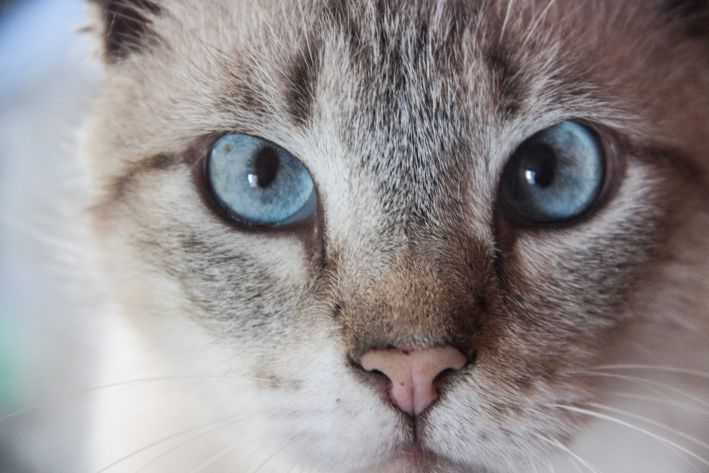Why do cats meow at night
It may be a meow, a trill, or a howl that comes into your dreams when the kitten is trying to get your attention to tell you something important.
Our feline friends try to be mysterious, but they sure know how to get attention. The question is, do we know what they want?
A cat that meows at night wants to wake you up for something specific, so we'll break down the kitten's communication code.
Why do cats meow at night
Cats have a special body language, and if you watch (and listen!) carefully, you can learn a lot about their mood, emotions, and desires.
For example, spraying or marking often signals that your cat is stressed or threatened, especially by other cats or changes in their environment. Wrapping their tail around your leg means that your kitten is affectionate and trusting (different tail gestures tell you a lot!).

So, why is your cat meowing at night? Leslie Sinn, DVM, DACVB, CPDT-KA, animal behaviorist, owner of Behavior Solutions, and a member of the Daily Paws Advisory Board. She's just saying she needs you.
“Cats meow for a variety of reasons, but they mostly meow when they’re seeking attention, food, or play from their owners,” she tells Daily Paws. “They also meow when they’re upset, confused, or worried about something.”
Think about how some people speak nervously when they are upset about something. Cats can do this too, and they really hope that you understand them.
Common stressors for cats include moving, illness, and age-related behavioral changes. “If this is a new behavior for your cat, especially as an older cat, take them to the vet to rule out any underlying medical issues, especially disease conditions, thyroid disease, and, in older cats, cognitive decline,” says Sinn.
Adding a kitten, dog, or child to your family can also confuse your cat, making them more likely to meow at night and even howl and make other cat noises as they try to figure out what's going on.
Sinn says there's also a chance that if your cat hasn't been spayed, she'll be calling or howling to find a mate and/or warn off rivals. If you suspect this is the case, schedule a consultation with your vet to discuss next steps.
How to Stop a Cat from Meowing All Night
It's important to determine the specific reason why your cat cries at night. However, there's a fine line between correcting the behavior with positive reinforcement... and making it worse.
"For example, if the reason is attention-seeking, then responding to a cat's meowing will only increase the likelihood that the cat will bother you at night," says Sinn.
It's not that cats are manipulative, but they respond to our training cues. Convince your cat that you will leave your warm, cozy bed when she calls, and that's why they think they are our masters.
So, get your cat antenna up and tune in to her signals the next time your cat won't stop meowing at night:
- Does your kitty run to the food or treat cabinet as soon as she sees you? "Use a timed feeder for a midnight snack if your cat is bothering you because she's hungry," says Sinn. "Or create a food puzzle that lasts all night."
- When you turn on the light, do they jump or frolic? It's playtime! "Have a 15-minute play session about an hour before bed," says Sinn. Some ideas might include running a feather up and down their cat tree, throwing a ball of paper across the floor, or using an interactive toy for fun interaction.
- If your furball is simply blinking at you or looking for a spot on your lap, they may be bored and looking for company. “Give your cat attention when it’s quiet during the day and reward calm behavior,” says Sinn. “And make sure their environment is appropriately enriched.” This could include a variety of exercises and stimulating games.
Sinn adds that it is generally never recommended to get a second pet to help solve your cat's meowing problem at night.
"However, if this is a young, active cat and the owner simply cannot meet its needs for exercise and socialization, a compatible playmate may be an option to consider."
What does it mean when my cat meows in her sleep
You've probably come across this cuteness many times: fluffy kittens meowing while they sleep. Sinn says there's probably no reason to worry.
"I personally haven't seen this with my own cats," says Sinn. "But I would assume they're just dreaming and mumbling, like we all do sometimes!"
If all this cat chatter has piqued your curiosity about how to solve the wonderful mysteries presented by kittens, Sinn recommends taking a cat behavior course at Ohio State University and reading the book Decoding Your Cat.
Previously we talked about the most loyal dogs .
